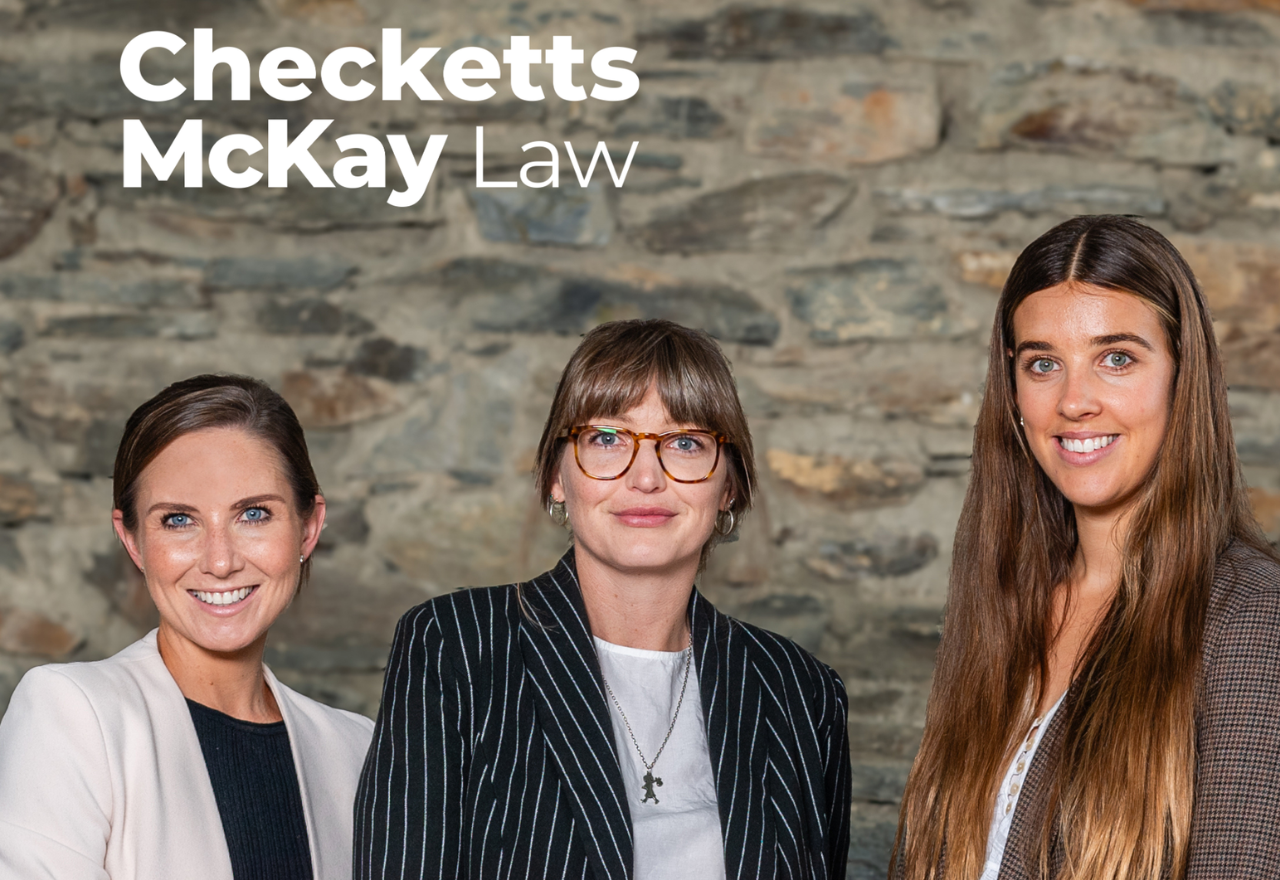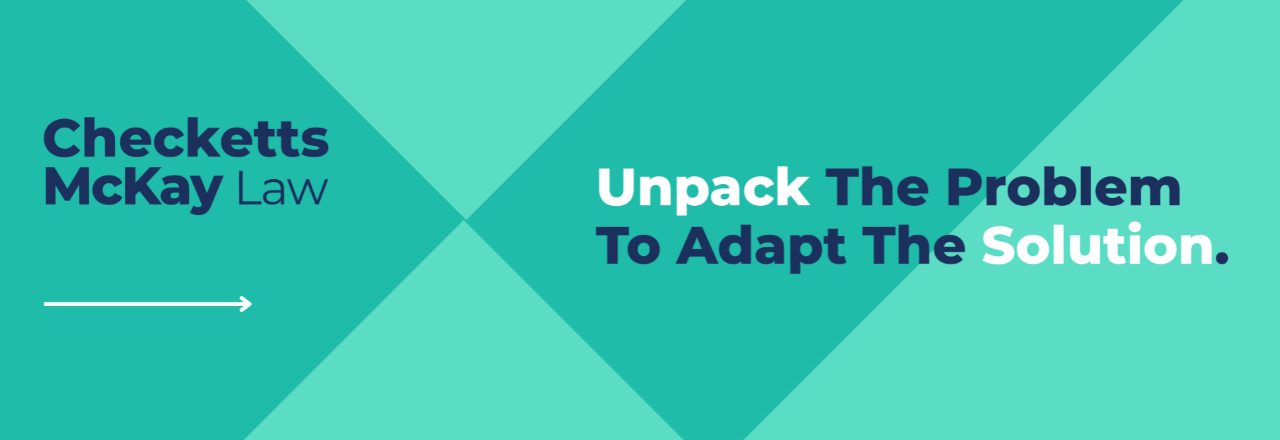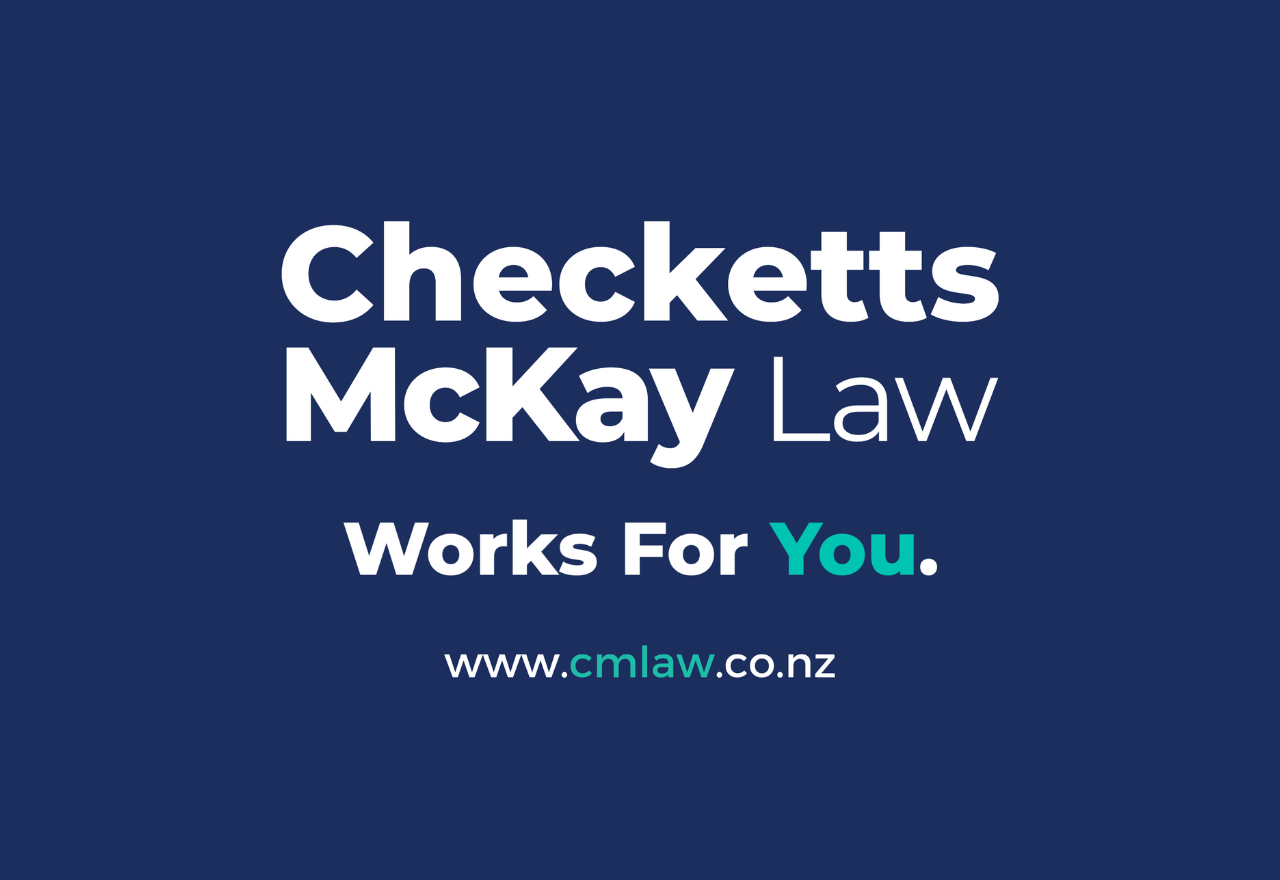Why Estate Planning Matters (Law blog)
Paige Devereux - Checketts McKay Law
03 September 2025, 9:07 PM

Time again we hear clients say they have been meaning to get around to their estate planning, but it is not uncommon for people to go months or years without putting pen to paper and sorting their affairs out. When we talk about estate planning, we are referring to your Will, guardianship arrangements for your children, Enduring Powers of Attorney and a Memorandum of Wishes (if you have a Family Trust).
Your Will
A will ensures that your wishes prevail, even after you’ve gone. In the absence of a will the Administration Act takes effect; this is costly to your estate and the statutory administration of your estate may not result in the outcomes you would have intended had you drafted a will yourself. Your will ensures that a trusted executor of your choice is appointed to administer your estate and that your assets (property, savings, personal belonging etc) are distributed to the people you choose. You may also like to include special requests in your will such as a gift or donation in your name to your favourite sports club or charitable organisation.
Avoiding Family Conflict
Passing away without a will can spark disputes among relatives over property or guardianship of children. A will clearly documents your intentions, reducing emotional and financial stress on grieving families.
Guardianship
In the event a child loses their parents together or in quick succession, who would have guardianship of that child? This is a major decision, and it is important that parents have this decision documented somewhere, such as in their Will. It is also important to talk this through with a trusted advisor like a lawyer who can ensure this decision is documented correctly and also discuss with the parents the difference between guardianship and day-to-day care arrangements.
Safeguarding Decisions When You Can't Make Them
An Enduring Power of Attorney (“EPOA”) lets you appoint trusted individuals to handle your personal care, welfare, finances, and property, if you lose capacity There are two types of EPOA, one for appointing an attorney to make decisions on your personal care and welfare and another to make decisions on your finances and property. We recommend that you get both completed. It is important to remember that EPOAs operate from a time when a person loses capacity until they pass away, and after death your will takes effect. Any individual wanting to access aged care in NZ will require an EPOA, whether that is entering an independent apartment within a Retirement Village at 65 or if a person is entering fulltime care much later in life. Most, if not all, aged care providers will require a resident to have valid EPOA’s before coming to live at the Village. Clients are often pleased to hear that they have the option to appoint an individual as their attorney with specific instructions that their attorney provide information to or consult with other people, who are similarly important to the EPOA donor. For example, in the event one adult child is appointed as the attorney, a duty on that attorney to consult with and provide information to their siblings is an important feature if the EPOA donor would like to ensure all family members feel included in the process.
Family Trust
In the event you have an existing Family Trust or are thinking of setting one up, we recommend a Memorandum of Wishes, if you do not already have one or it is not an up to date expression of your wishes. The Memorandum of Wishes is a guideline from yourself as the Settlor of the Trust to the Trustees who will be operating the Trust which sets out your objectives and purpose in setting up the Trust and your wishes as to how the Trustees administer the Trust usually including your view on how and in what proportions you would like to see some or all of the beneficiaries benefit from the assets of the Trust. A Memorandum of Wishes is not binding on the Trustees but it is useful guidance to the Trustees and evidence of the purpose for which the Trust was established. We can assist you to put this Memorandum together and we can similarly discuss with clients the option of having an annual Family Trust review, whereby we check in with you once a year to ensure all Trust records are up to date and whether any major life changes in the last year require us to update your estate planning documentation.
Flexibility Through Life’s Changes
Estate planning should be organic and evolve as life changes. Key life changes that may require you to get in touch with us to review your estate matters include births, deaths, new relationships, the end of an existing relationship, a significant change in your property/asset pool or simply if your wishes for your estate have changed.
Whether you have an existing will, Enduring Powers of Attorney and/or a Family Trust and would like us to assist you with an estate review or if you have not embarked on estate planning before and would like to take the first step of putting a Will in place; we at Checketts McKay Law are more than happy to meet with you in person or over the phone for an initial discussion and then work towards putting estate planning documentation in place that best reflects your wishes.
7 Dunmore Street, Wānaka



